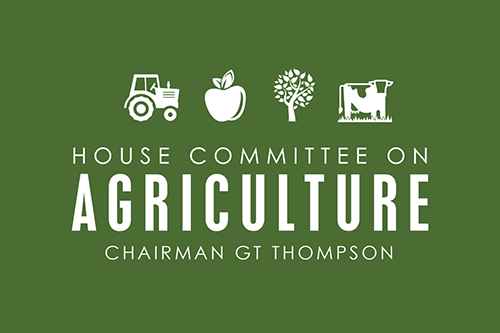 Over the past 12 months co-ops in the USA have been faced with unforeseen hurdles – ranging from the Covid-19 pandemic to the growing civil unrest following the death of George Floyd.
Over the past 12 months co-ops in the USA have been faced with unforeseen hurdles – ranging from the Covid-19 pandemic to the growing civil unrest following the death of George Floyd.
The sector rose to the challenge as it implemented Covid-19 health and safety measures, supported local communities and helped to promote democracy and inclusion.
With a new president and Congress in office, the movement will continue to lobby government to ensure co-ops are taken into account when relief funding is allocated. Beyond that, apex NCBA CLUSA will be working to promote democracy and inclusion, raise awareness about the sector and campaign for revisiting the Statement on the Co-operative Identity.
“Co-ops have really showed their distinction as a people-centered business in terms of prioritizing the safety and health of the key members and other stakeholders,” says NCBA CLUSA President and CEO, Doug O’Brien, who is also a member of a local food co-op in suburban Washington DC and Maryland.
He has been leading the organisation since 2018, having previously led the work of the White House Rural Council and served in top positions at the US Department of Agriculture Rural Development.
“Other co-ops in the food system, including agriculture and food processing, played an integral role in making sure that that the food supply system continued while keeping in mind the workers’ safety so the most important element in their approach was how they took care of people”, he says. “Of course, the economic performance of co-operatives was really important as well because that affects their viability.”
Smaller public-facing worker co-ops such as restaurants and cafés were hit hard by the pandemic and some did not survive. Other co-ops and credit unions were positioned to excel in the virtual economy and as a result, coped better with the pandemic.
NCBA CLUSA worked closely with the co-operative community early on to make sure that as many co-ops as possible were eligible for federal support. Thousands of co-operatives were able to access funds through the Small Business Administration’s Paycheck Protection Program (PPP) as a result of its advocacy efforts. Most co-ops, including rural electric co-operatives and credit unions, were eligible early on while housing co-ops were made eligible only in December 2020.
In addition to campaigning to make all co-ops eligible, NCBA CLUSA focused on increasing the knowledge base of the Small Business Administration (SBA) staff of how co-ops operate and how to work with them. This will also ensure the SBA’s programs of lending and technical assistance are more accessible to co-ops going forward, says Mr. O’Brien.
Over the last year, the US co-operative community has spoken out for the need for greater racial equity, particularly in the wake of the murders of George Floyd and Breonna Taylor.
“That work is going to continue and we’ll maybe take that up in a different question about diversity, equity and inclusion,” says Mr. O’Brien.
Building a more inclusive economy has been a key focus for the NCBA CLUSA since 2017. The Credit Union National Association (CUNA), an apex for credit unions and member of NCBA CLUSA, included diversity as an eighth co-operative principle in 2019. Later on, the board of NCBA CLUSA adopted a resolution that addressed this and stated that NCBA CLUSA supports a greater understanding and a clear expression of diversity, equity and inclusion in the co-operative identity. The apex says it has engaged with the International Cooperative Alliance to explore how this could be done.
“There are a number of options, including creating an eight co-operative principle as CUNA did,” adds Mr. O’Brien. “Right now, the co-operative identity includes the importance of diversity, equity, and inclusion but we do wonder whether this can be clearer. For instance, the first co-operative principle of voluntary and open membership talks about the notion that co-ops will not discriminate based on certain characteristics. There might be a way to adjust that principle so that it’s not only against discrimination, but it makes clear that it embraces inclusion.
“The ICA is looking at the guidance notes to make them more accessible and we’ve had conversations about how to make sure that diversity, equity and inclusion are a crucial part of that. We know that this topic is on the agenda at the World Cooperative Congress in December and I think part the reason why it’s on the agenda is because NCBA CLUSA and the US community have really been bringing that forward. We’ve been in communication, not only with ICA leadership, but also co-operative leaders both on the ICA board and otherwise and we see support for this improvement. It’s definitely one of our goals in 2021, and we will be looking forward to discussing this at the World Co-op Congress, themed Deepening our Co-op identity.”
The discussion around democracy and inclusion is even more important in the context of the January 6 siege at the U.S. Capitol, says Mr. O’Brien, an event he describes as “disturbing beyond words”.
“We immediately stepped forward and made clear that the co-operative community stands for democratic principles and democratic institutions.
“I think co-ops have a role to play, not only here in the United States but across the world, because democracy in our DNA, enshrined in the second co-operative principle. We understand and practice that better way of governing and that’s something that I expect the global community even beyond co-operatives is going to be focusing on more and more and I think co-operatives, have a huge place at that table.
“We’re still trying to figure out exactly what the recent events mean. Our democratic institutions are surviving and will survive but we’re being tested right now. I think the co-operative community has a role to play in making sure that we come out of this stronger, as opposed to just bruised and battered.”
Mr. O’Brien thinks co-ops need to shout even louder about their people centred business model, especially at a time when even conventional businesses are expected to make social contributions and go beyond making profit.
President Joe Biden made a series of co-operative pledges in his campaign manifesto, including “historic procurement and investments to bring the future within reach for big utilities and rural co-operatives” and exploring the use of land trusts, co-operative farm operations, and farm credit systems to empower ethnic minorities.
NCBA CLUSA will focus on ensuring that co-ops are able to access resources as well as another upcoming round of relief funding and that the sector is part of the Administration’s strategy to tackle inequality.
“There are some sectors that we think present particular opportunities, such as the care sector,” says Mr. O’Brien. “We’ve been doing a lot of work with our Cooperative Development Foundation over the last four or five years on worker owned homecare co-operatives. So we hope that there can be some good resources and policy to support that.
“Another one is around conversions of small businesses to worker owned or consumer owned co-ops – we’ve seen some great examples of that in both rural and urban places. But as small businesses are faced with the challenges around Covid-19 and the economy, we think that the SBA and others have a real opportunity to help small business owners to convert their businesses to worker owned or consumer owned co-ops.
“Another important area for the Biden administration is climate change. We need to really lean forward on making sure that co-operatives, be they farmer owned co-operatives or consumer owned co-operatives, have an opportunity to participate in these initiatives around climate change so that the people who actually own the assets can really affect behaviour and benefit from the policies.”
In terms of legislative changes, Mr. O’Brien says one change he would welcome is removing the personal guarantee required to secure a loan through the SBA’s flagship guaranteed lending programme. With co-ops being jointly owned by groups of people, they are unable to have a single individual guaranteeing the loan.
“We’ve been working for a number of years with the co-operative community, and even had in 2018 legislation that was passed and signed by the President that required SBA to look for solutions around this personal guarantee. We think it’s time to just abolish that personal guarantee.”
Going forward, a key priority for NCBA CLUSA will be to help people use co-operatives to build more inclusive economies. Mr. O’Brien thinks co-ops have a role to play in tackling the multiple crises facing the US: the Covid crisis, the public health crisis, the economic crisis and systemic racial inequality.
“Our overall goal is to make sure that not only policymakers, but also other thought leaders across the country understand that there is a strategy that has been used for generations across the world that can help address these different crises,” he said, adding that these issues will be discussed at NCBA CLUSA’s Cooperative IMPACT Conference in October 2021, which will be a hybrid in-person and virtual event.


